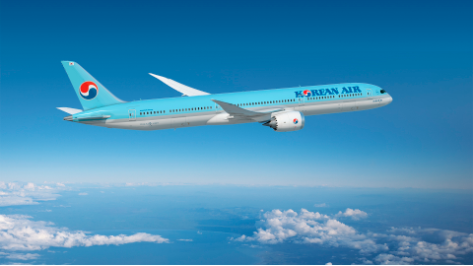Supported by its parent company Hanjin Group, Korean Air plans to buy out its competitor for nearly 1.4 billion euros. Consolidation following the air transport crisis linked to the Covid-19 pandemic is underway. The news came from Korea that Korean Air and Hanjin KAL Group, its parent company, had decided to buy out its competitor Asiana Airlines at a board meeting on 16 November 2020. Korean Air plans to acquire Asiana for 1.8 trillion won, or nearly 1.4 billion euros. In order to secure this amount, Korean Air plans to increase its capital by 1.9 billion euros by issuing new shares.
Financing Asiana Airlines until the end of the year
According to the agreement with the Korea Development Bank, Hanjin KAL Group, will receive an investment of 608 million euros. It will lend this amount directly to Korean Air, to support the two airlines, prior to Korean Air's capital increase. Of the 608 million euros, Korean Air will use 228 million euros to acquire Asiana's perpetual convertible bonds, and will use an additional 228 million euros as an advance payment for the 1.1 billion euros contract to acquire the new shares of Asiana Airlines. This initial investment by Korean Air will also enable Asiana Airlines to obtain the necessary financing for its operations until the end of the year and improve its financial situation.
One country, two national airlines
"Once Korean Air has finalised the acquisition of Asiana Airlines, the airline should be ranked among the top 10 airlines in the world," Korean Air said in a statement. "In general, countries with less than 100 inhabitants have only one national scheduled airline. However, Korea has two national scheduled carriers, which puts it at a competitive disadvantage compared to countries such as Germany, France and Singapore with only one national airline. In fact, this acquisition will facilitate the expansion of Korean Air's global network, aircraft fleet and capacity, providing the competitive edge needed to compete with the world's mega airlines". This takeover will also have consequences for global airline alliances, since Korean Air, a member of the Skyteam alliance (grouped around Air France-KLM and Delta) is expected to take over Asiana Airlines, a member of the Star Alliance.

